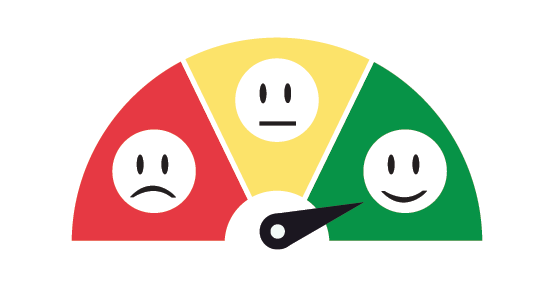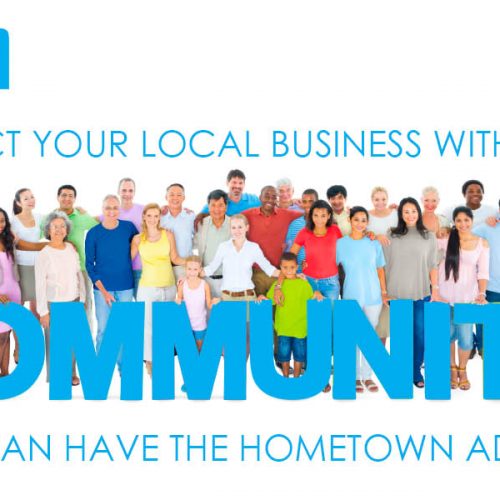Conquering the human elements to create a successful marketing strategy.
To learn how to create a successful marketing strategy you need to understand human behaviour?
How there are subtle influences in their buying process, here is a break down of what you need to know.
A successful marketing strategy need to take into account a range of emotions that the prospective buyer could be influenced by and design a campaign that will either counter or trigger that influencer.
1. People make decisions emotionally.
They decide based on a feeling, need, or emotion, not through a logical thought process. That’s why intangible benefits are the keys to persuasion.
When you’re writing, you should ask yourself, “What is the emotional hot button here?”
2. People justify decisions with facts.
Example: a man sees an advertisement with a photo of a sports car and instantly falls in love. However, he can’t bring himself to buy the car based on a feeling, so he reads the copy for technical details about the powerful engine, safety features, and low maintenance.
He wants the car because it makes him feel good. But he buys it only when he can justify the purchase rationally.
3. People look for value.
Value is not a fixed number. Value is relative to what you’re selling, what others charge, what the prospect is used to paying, how badly the prospect wants it, and how the prospect perceives the difference between your offer and others.
You must demonstrate a value that seems to be equal to or greater than the asking price. The greater the value relative to the price, the more likely people are to buy.
4. People are naturally suspicious. It’s true that there’s a sucker born every minute, but most people are moderately skeptical of any offer. They seek to avoid risk.
You can never predict the level of suspicion any particular person has, so it’s usually best to back up all claims with evidence, such as testimonials, survey results, authoritative endorsements, test results, and scientific data.
5. You can’t force people to do anything. When people buy, it’s not because you wield some magical power over them.
You can urge. You can push. You can entice. But ultimately, people do what they want to do. This means your job is to show how what you’re offering meets your prospect’s needs.
6. Most people follow the crowd.
Most of us are imitators.
We look to others for guidance, especially when we are uncertain about something. We ask, “What do others think about this? What do others feel? What do others do?” Then we act accordingly.
This is why testimonials and case histories are so influential.

A successful marketing strategy is affected by influences
Fears that affect purchasing decisions
Fear is an emotion that can be used in a wide variety of marketing messages. Insurance companies often appeal to the emotion of fear with messages like “Don’t get caught with too little insurance.”
lists of human fears that every member of a society deals with throughout their life and how they impact your marketing efforts.
1. Most of us fear losing our freedom to choose: what would happen if we were to lose the power to control our own lives.
This fear starts with mundane things, such as that time you were grounded in your room by yourself without the possibility of leaving until you finished your homework, or our
Key: fear of the commitment our frerdom of choice.
We have all know someone or have ourselves made bad decisions over and over again,
2. The Unknown- Anxiety: A generalized feeling of uneasiness and foreboding; a fear of the unknown; fear without a subject reason.
Anxiety is probably the thing I see that most people repress. It’s my belief that anxiety is just another emotion (or a mix of them) trying to come up! People can have a hard time identifying where the anxiety is coming from, what it is and when it started. It often becomes such a common feeling that we come up with all kinds of ways to ignore it.
The fear of the unknown is easily explained like this: the mind tells us that in order to move forward, we must know what is waiting for us there, because “if I know, then I can control the situation, and if I don’t know, then I am not in control”.
we don’t like what is different, this is simply because we can neither understand it, nor have a plan to control it beforehand.
This fear has been with us for thousands of years, and it is a great part of what has helped us survive as a species.
Many of us, when we were kids, were afraid of the dark, mainly because we didn’t know what might be hiding in there, and similarly when we didn’t know what might be at the end of the hallway we felt the need to pull ourselves away from it.
3 Pain influences our decision making process, Since the intensity of physical pain is a purely subjective feeling, which is sensed differently by each individual, it is quite hard to make generalizations of what causes people pain.
But physical pain can be described as an unpleasant sensation, generally caused by damage to a certain part of the body. Aside from a few exceptions, most of us are intolerant or afraid of physical pain, this can be noted in the fact that there are a great amount of medications related to pain relief, with different levels of strength and related to different types of pain.
The rejection of pain is caused because we associate physical pain with illness and bad health, in general. This fear can be linked with the fear of losing your freedom, such as in the case of people that suffer from chronic pain and usually see their physical freedom limited because they want to avoid doing the actions that cause, or increase, the pain sensation.
4 Disappointment – Overwhelm: To be overpowered in mind or emotion; extreme stress; feeling overpowered with superior force; feeling excessively burdened.
This is often self-inflicted. We live in a society where we never feel we’re doing enough, fast enough, good enough. So, we take on more. And then we get overwhelmed. Also, we can tend to be overwhelmed with emotion and if we don’t want to feel that, we can bury it and it can become trapped.
This fear is somewhat hard to explain, since there are two different fears that are related to disappointment – one of disappointing others and one of suffering disappointment yourself.
The fear of disappointment is part of the reason we avoid the unknown, disappointment is that feeling of dissatisfaction when our expectations do not match what actually happened.
We all, as kids, lived that awful experience in which we did something wrong or misbehaved, and were expecting a punishment or at least some screaming from our parents. But, instead we got the unpleasant sight of our parents just staring at us with sadness in their eyes, and saying “I am disappointed in you”.
That single sentence hurt a lot more than any other punishment would have.
5 Misery: Misery is the inability to cover our own basic personal needs.
No one likes seeing or feeling human misery, because we know that the worst of human actions come out of the desperation caused by misery.
It is what we consider as the lowest point in what comes to human needs, and that is why we fear it so much.
No one wants to feel that absence of things, and this has caused the media to feed us more of this fear in advertising, telling us that we need more things than we actually do.
6 Loneliness – Unsupported, A lack of support, help or encouragement; not provided for by another; not defended when help is needed; feeling the burden is too heavy to bear alone.
This one goes back to being isolated. Feeling unsupported is scary and makes us feel like we have nowhere to turn. When we have nowhere to turn, we don’t know what to do. And when that happens, we usually find a distraction and don’t really work through the feelings and let them go.
The fear of being alone is that dreadful feeling of emptiness caused by the absence of interaction with another human being.
This fear has also evolved from one of our early survival instincts: we fear loneliness because it is more likely that we would survive if we live in group.The fear of loneliness is related to doing something and no one noticing.
We often feel that in order for our actions to be meaningful, someone has to notice them, this can also be seen as looking for a sense of belonging.
7 Ridicule: Ridicule is related to the fear of getting bad criticism, but on the other hand it is also caused by our social fear of not projecting a good enough image of ourselves to others.
some customer lack the self-confidence that helps deal with the effects of being laughed at or criticized, the fear of ridicule never really leaves us because we don’t like the feeling of being in the spotlight for a negative reason, and being at the mercy of the opinions of others.
8 Rejection: This social fear is one of the main reasons people act the way they do.
Many will sometimes blindly follow the actions of others, because it helps us avoid dealing with rejection caused by making wrong decisions so we look for authorisation or a trusted advisor for approval.
9 Failure: The fear of failure rules over all our actions and decisions. We all do, and don’t do, things in order to avoid failure.
Failure can be amongst other things, finding yourself helpless.
The main fear of failing comes with the disappointment that follows, that feeling that despite your effort, you cant control the situation, it causes a feeling that you might not even want to try again.
The fear of failure is often used as an excuse to procrastinate, or not do anything to make situations better – “ie why bother they will only tag it again?”
Things that influence our decision making process
1. Guilt: Consumers are easily affected by messages that trigger emotions of guilt. Nonprofit organizations use the guilt trigger effectively in copy such as “Don’t let them suffer anymore.”
2. Trust is one of the hottest trends in marketing, and every company seems to be trying to jump on the trust bandwagon in their marketing messages. Financial companies are leading the way with messages like “no hidden fees.”
3. Value is another hot trend in marketing, and many promotions appeal directly to the emotional trigger of getting a good deal. For example, promotional messages that say “If you find a better price for the same product, we’ll match it” are effective in piquing feelings related to value.
4. Belonging: Few people truly want to be alone. Human nature dictates that most people want to feel like they belong to a group, and customers often purchase products in an attempt to feel part of a specific group. Many companies effectively appeal to consumers’ desires to belong, using copy like “You’re part of the family.”
5. Competition: The old adage of keeping up with the Joneses is an adage for a reason. Many consumers are affected by a competitive desire to feel equal to or better than their peers. Copy like “Make them drool” is a great example of a message that elicits feelings of competition.
6. Instant Gratification: We live in a world where people expect instant gratification in all aspects of their lives. Messages that cater to a sense of urgency are well-received by consumers who already desire instant gratification. Use words like now, today, in one hour or less, within 24 hours, and so on to appeal to the emotional trigger of instant gratification.
7. Leadership: A lot of consumers want to lead the way in trying new products, and this audience responds strongly to marketing messages that appeal to their feelings related to leadership. Messages that make them feel like they’re first or in control are powerful for this audience. Phrases such as “Be the first on your block” effectively appeal to the emotional trigger of leadership.
8. Trend-setting: Many consumers want to feel cool or trendy, so appealing to those emotions in copywriting is fairly standard. Variations of “all the cool kids are doing it” are commonplace in copywriting and can be used to market a wide variety of products and services to an even wider audience. The famous Gatorade ad featuring Michael Jordan and the copy “Be like Mike” is a perfect example.
9. Time: In the 21st century, people are busier than ever. As such, they desire more free time to pursue personal interests, spend time with family and friends, and so on. Marketing messages that appeal to that desire for more free time will attract this type of customer.
Do you need more help creating a successful marketing strategy that will work for you business?
If you need help with your local area marketing, social media or online marketing or print marketing strategy, give us a call on 0409 002 892 or 1300 946 227 or email us at getconnected@workslocal.com.au or on our website www.workslocal.com.au

Check out our huge range of promotional products that will help you get your brand in the hands of your customers.




